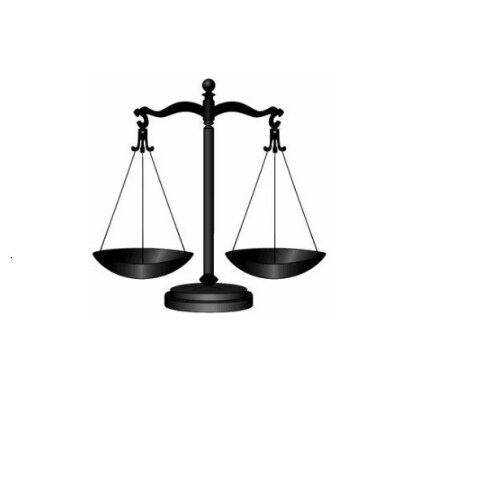Best Faith-Based Law Lawyers in Nigeria
Share your needs with us, get contacted by law firms.
Free. Takes 2 min.
Or refine your search by selecting a city:
List of the best lawyers in Nigeria
About Faith-Based Law in Nigeria
Faith-based law in Nigeria generally refers to legal principles and practices that are derived from religious beliefs and doctrines. Nigeria is a multi-religious country with a legal system that incorporates elements of common law, customary law, and various religious laws, such as Islamic Sharia law and Christian canon law. Faith-based law may govern personal matters like marriage, divorce, inheritance, and the administration of estates, especially within communities where religious doctrines are deeply interwoven with cultural identities and social norms.
Why You May Need a Lawyer
There are several situations in which individuals may seek legal assistance related to faith-based law in Nigeria. Such scenarios may include:
- Interpreting religious doctrines in legal matters, especially in marriage, divorce, and inheritance cases.
- Resolving disputes that arise from conflicts between secular and religious legal systems.
- Seeking guidance on compliance with faith-based obligations that may have legal implications.
- Navigating coexistential issues between different religious communities, especially in regions with mixed-faith populations.
- Understanding government policies affecting religious practices and institutions, including licensing and registration of religious organizations.
Local Laws Overview
Nigeria’s legal framework accommodates various religious legal systems, making it important to understand the intersecting laws related to faith-based practices:
- Constitutional Law: While the Nigerian Constitution guarantees religious freedom, it provides that no state religion shall be adopted, presenting a balance of secular authority with religious rights.
- Sharia Law: In certain Northern states, Sharia law is applied in personal matters among Muslims. It addresses family law matters, including marriage and custody.
- Customary Law: Customary law, influenced partially by religious practices, plays a role in traditional marriage, land tenure, and inheritance issues.
Understanding the jurisdiction and applicability of these laws is crucial for those encountering faith-based legal issues.
Frequently Asked Questions
1. What is faith-based law?
Faith-based law refers to legal principles derived from religious beliefs and used to govern personal and family matters, especially in communities where religion plays a significant role in social life.
2. How does faith-based law apply in Nigeria?
Faith-based laws in Nigeria may apply alongside common and customary laws, especially in personal matters such as marriage, divorce, and inheritance, with particular prominence in states practicing Sharia law.
3. Can faith-based law override constitutional law?
No, constitutional law is supreme. However, faith-based practices are given recognition in so far as they do not contravene the constitutional prohibitions or public policy.
4. What role do religious leaders have in the legal system?
Religious leaders often play mediatory roles in disputes involving faith-based agreements or practices, and may provide moral guidance or interpretations of religious law in legal matters.
5. What is the role of customary law in faith-based cases?
Customary law often overlaps with faith-based law in Nigeria, particularly in areas of family law, recognizing the cultural practices rooted in religion.
6. What should I do if there is a conflict between faith-based and secular law?
Seek legal advice to understand the appropriate jurisdiction and resolution mechanisms, and potentially appeal to higher courts if necessary, ensuring that constitutional rights are preserved.
7. How do different religions' laws coexist within Nigeria?
Different religious laws coexist through recognition and respect for diversity, with specific legal jurisdictions handling matters pertinent to each religious community, though always under Nigeria's legal framework.
8. Are faith-based marriages legally binding?
Yes, if conducted in accordance with the relevant religious and civil procedures required by law, faith-based marriages are legally recognized.
9. Can you use faith-based law for business disputes?
Typically, business disputes are handled under common and commercial law. However, faith-based considerations may influence contractual obligations where all parties consent.
10. Is there a government body that oversees faith-based law?
There isn’t a direct government body for faith-based law; however, regional religious councils or customary law courts may manage specific issues. The Nigerian judicial system provides overall oversight when disputes arise.
Additional Resources
For those seeking more information or assistance in faith-based legal matters in Nigeria, consider reaching out to these organizations:
- Nigerian Bar Association (NBA)
- Legal Aid Council of Nigeria
- State-based Sharia Courts (in applicable regions)
- National Human Rights Commission (NHRC)
- Organizations focused on interfaith dialogue such as Interfaith Mediation Centre
Next Steps
If you need legal assistance in matters of faith-based law, consider these steps:
- Identify the specific legal issues and the related religious or customary laws.
- Seek a lawyer with expertise in faith-based law, who is familiar with the intersection of religious and secular legal systems in Nigeria.
- Gather any relevant documentation or evidence pertinent to your case.
- Meet with your lawyer to discuss your situation and potential resolutions.
- Follow through with any legal proceedings or mediations as advised by your legal counsel.
Lawzana helps you find the best lawyers and law firms in Nigeria through a curated and pre-screened list of qualified legal professionals. Our platform offers rankings and detailed profiles of attorneys and law firms, allowing you to compare based on practice areas, including Faith-Based Law, experience, and client feedback.
Each profile includes a description of the firm's areas of practice, client reviews, team members and partners, year of establishment, spoken languages, office locations, contact information, social media presence, and any published articles or resources. Most firms on our platform speak English and are experienced in both local and international legal matters.
Get a quote from top-rated law firms in Nigeria — quickly, securely, and without unnecessary hassle.
Disclaimer:
The information provided on this page is for general informational purposes only and does not constitute legal advice. While we strive to ensure the accuracy and relevance of the content, legal information may change over time, and interpretations of the law can vary. You should always consult with a qualified legal professional for advice specific to your situation.
We disclaim all liability for actions taken or not taken based on the content of this page. If you believe any information is incorrect or outdated, please contact us, and we will review and update it where appropriate.
Browse faith-based law law firms by city in Nigeria
Refine your search by selecting a city.
















